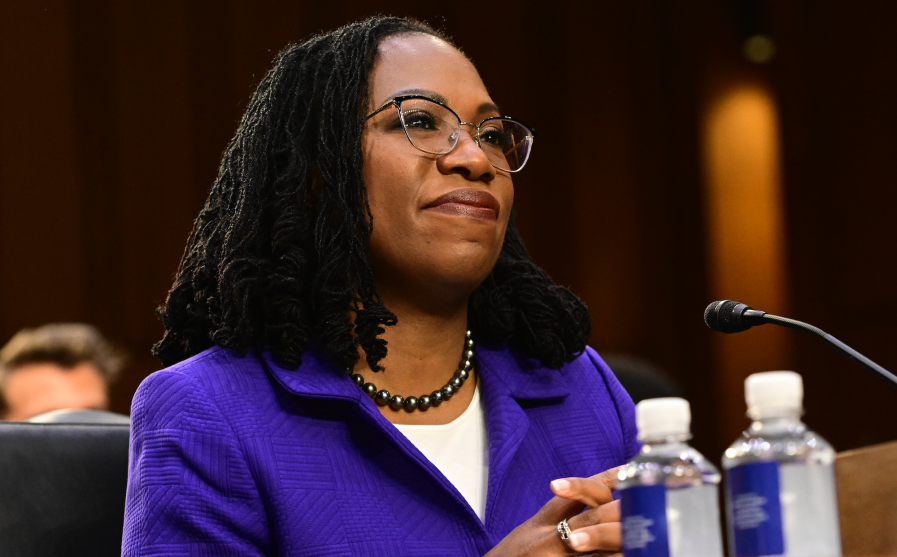
Ron Sachs/ZUMA
Tuning into the first day of Ketanji Brown Jackson’s historic confirmation hearings, one name loomed large, at least for Republican senators: Brett Kavanaugh.
Yes, lingering complaints about the 2018 hearings for Donald Trump’s second Supreme Court nominee appeared front and center. Kavanaugh, who survived a tumultuous confirmation hearing despite allegations of sexual assault, was repeatedly mentioned in Monday’s opening remarks, as Republicans insisted that Jackson’s time before the Senate Judiciary Committee would not devolve into the supposed “political circus” that had embattled Kavanaugh’s hearings. The hearing was punctuated by backhanded scoring settling.
“We’re off to a good start,” ranking member Republican Sen. Chuck Grassley said at the outset. “Unlike the start to the Kavanaugh hearings, we didn’t have repeated choreographed interruptions.”
“Democrats interrupted me for more than an hour during my opening statement on the Kavanaugh hearings,” he continued.
Perhaps the absence of disruptions stemmed from the fact that President Biden’s pick for the Supreme Court has never been accused of sexual assault. Omitting this critical distinction, Republican senators appeared to fume at the very memory of Kavanaugh’s treatment.
“Most of us couldn’t go back to our offices during Kavanaugh without getting spit on,” Sen. Lindsey Graham claimed during his turn to broach the 2018 hearings.
Ted Cruz went one step further, minimizing the allegations against Kavanaugh as baseless scrutiny of his “teenage dating habits.” “No one is going to ask you, with mock severity, ‘Do you like beer?'” the Texas senator assured.
“Engaging in the politics of personal destruction is not something we should ever aspire to,” Sen. Mike Lee continued, attempting to draw a contrast with his Democratic colleagues. “It is something that has occurred on this committee in the context of Supreme Court nominations. I’m pleased to say that it has never been under Republican leadership that such attacks have occurred.”
Republicans also suggested that they’d resist attacking Jackson with the same character smears they believed Democrats unfairly mounted against Kavanaugh. But those gestures at morality were quickly undermined by Republicans, including Graham and Josh Hawley, who signaled that they were willing to go after Jackson with wildly misleading attacks suggesting that as a judge, she had a record of going soft on child pornographers. As my colleague Stephanie Mencimer wrote, that absurd line of attack just emphasizes how little Republicans have to go on in opposing Jackson’s historic nomination.














